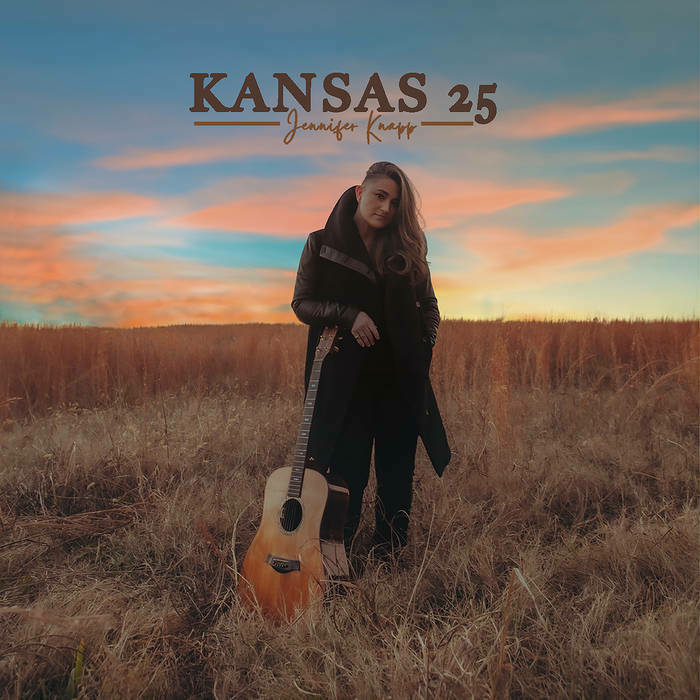Category: music
You are viewing all posts from this category, beginning with the most recent.
My favorite cover of Radiohead's Fake Plastic Trees: The Normals
Hard to believe this video is 25 years old at this point.
Familiar hymns, alternate tunes
Yesterday in church we sang “My Hope Is Built On Nothing Less” as the recessional. But rather than singing it to the tune SOLID ROCK, which was traditional in my childhood churches, the setting in the Episcopal hymnal is MELITA, which is best known as the US Navy Hymn “Eternal Father, Strong to Save”.
My brain being what it is, it spent the rest of the afternoon processing through what other hymn texts have the 8.8.8.8.8.8 meter and could be sung to MELITA. While Hymnary lists hundreds of them, in the end my brain fixed on one and wouldn’t let go: “O Come, O Come, Emmanuel”.
I mean, I’m not advising it would be a good match… but it’s a metrical fit. Kinda creepy.
A little music nerdery: 'God of our Fathers' and 'O Canada'
This morning before church I was listening to the organist practice, and while I knew from reading the bulletin ahead of time that the processional was God of our Fathers, when I heard the organ music my brain wanted to run with it instead as O Canada. At the time I was puzzled why, but then when I actually sang the hymn while processing, I realized what it is: the second line of both songs is nearly identical in melody and harmonic progression.
I dug up sheet music for both of them in the same key just to belabor the illustration. Here’s God of our Fathers:
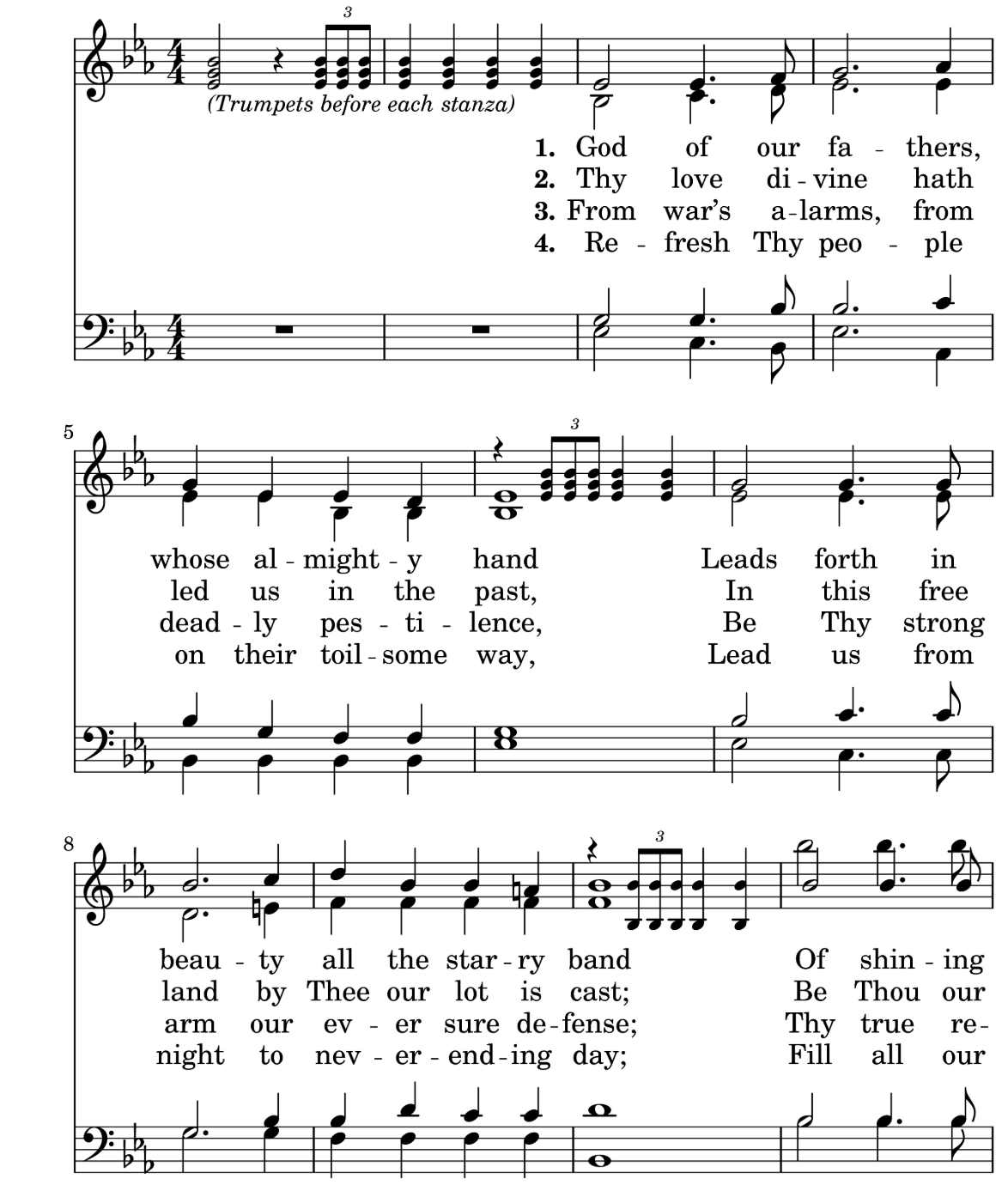
And here’s O Canada:
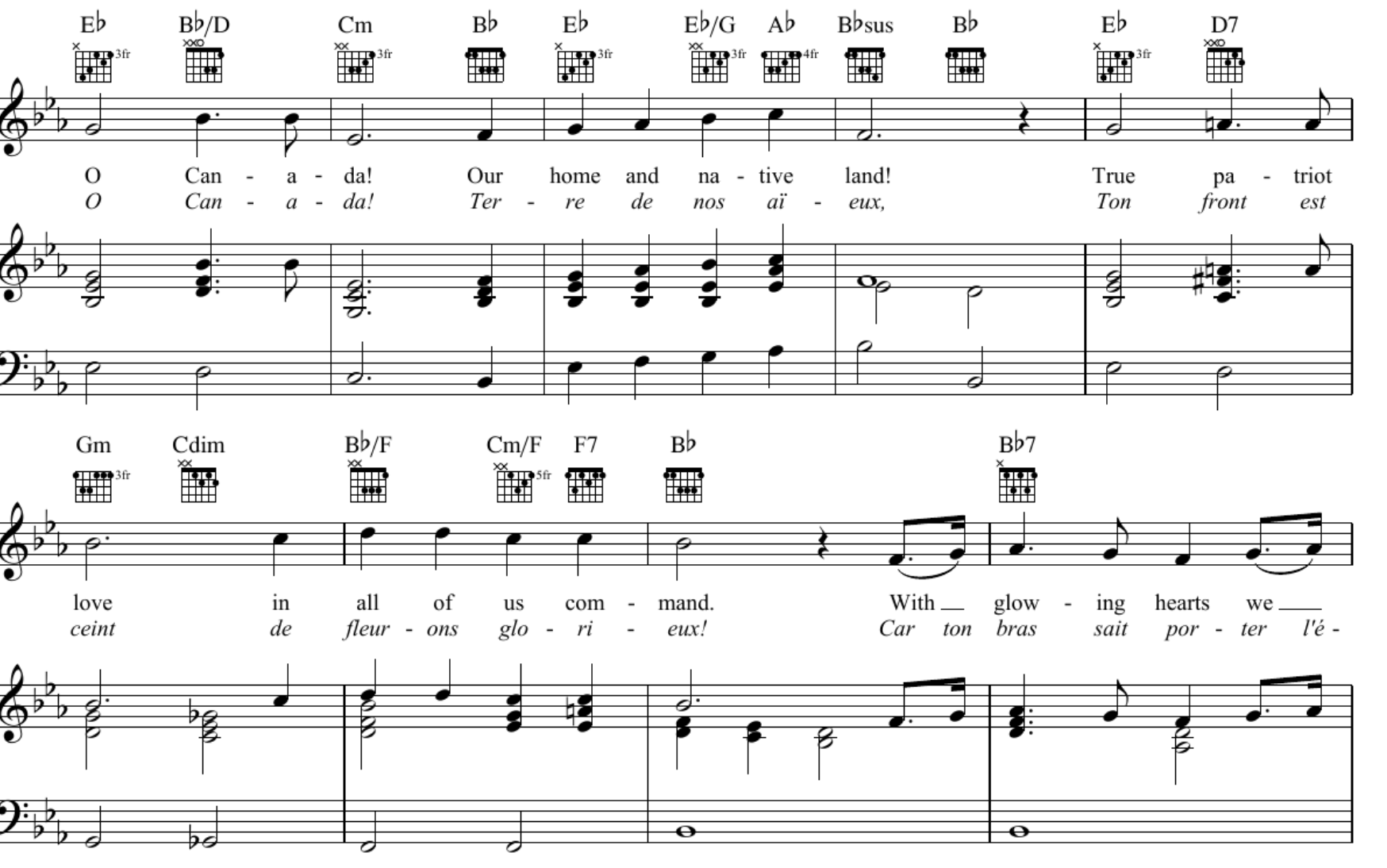
My music theory is rusty, but in the second line (“Leads forth in beauty all the starry band” and “True patriot love in all of us command”, respectively), they start on the I, hit the iii, and then the V - V/V - V cadence with almost the same melody. The Canadian anthem does sneak a transitional V/iii chord in as some passing snazziness, but on the whole: I will forgive my brain for mentally continuing on “with glowing hearts we see…” rather than “of shining worlds in splendor…”.
Thus endeth the music nerdery.
(“Thanks be to God!”)
Choir performance this weekend!
With all the chaos in the world I’m gonna spend some time away from social media this week and blessedly focus on being the best dang tenor I can be in this weekend’s concerts. The Mozart Requiem isn’t gonna sing itself, folks.
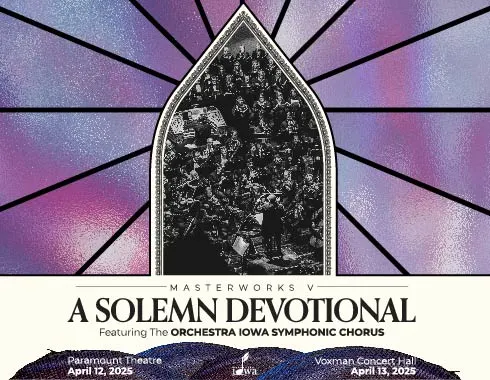
I joined the Orchestra Iowa choir last fall when they had an open audition call and I had a little bit of free time. I’ve done all sorts of music stuff in my life but very little actual choir singing, so I was a little bit nervous. But I made it through the audition and it’s been a delightful experience singing with the choir. Maestro Tim Hankewich runs a tight and effective rehearsal, and I’ve never been the best singer in the group but I’m a dang good sight reader (thanks, decades of piano playing!) and I’m not pitchy (thanks, years of listening to my dad tune pianos!).
Tonight we head to the first rehearsal with the orchestra; tomorrow the same; Saturday night and Sunday afternoon we perform. There are still tickets available if you’re in Eastern Iowa and want to attend.
ne cadant in obscurum
I am singing in the Orchestra Iowa chorus for the spring performance of Mozart’s Requiem and we’re in rehearsals right now. And I know this is a hazard of learning and performing music, but I have had this single phrase stuck in my head every day for TWO FULL WEEKS at this point.


Not sure what it is about this particular line. Maybe the bit of time I spent working out in my head that big jump did it… a major seventh is a fun one to navigate, and in this spot the tenors are the only ones singing, so it’s naked and we really need to nail it.
Whatever the reason, I’ll be glad when some other musical phrase supplants this one as my persistent earworm. I mean, I love me some Mozart, but this has been long enough.
I'm all caught up...
Well, after 171 hours of listening starting back in 2023, I am finally caught up with the podcast A History of Rock Music in 500 Songs. This is one of those cases where the podcast medium perfectly lines up with the intent, since fair-use clips of music for illustration can be regularly inset in the show and give you insights into the music that a book could never provide.
Andrew Hickey has slowed his pace a good bit since he started the podcast. While I have doubts about whether he will ever actually make it to song #500, even through the first 177 songs he has provided me a wonderful background education about the development of rock music from the early 20th century up through the late 1960s.
Now that I’m caught up, I need to figure out what podcast becomes my next binge show. I’ve let my Filmspotting backlog get pretty big, I might do a quick scan through at least the review bits of those. Otherwise I’m open to suggestions!
Sharing my own music for the season: Carols for Christmas (piano instrumentals)
Hard to believe it’s been a dozen years since I recorded a set of Christmas carol piano instrumentals which I inventively titled Carols for Christmas. My audience has probably changed a bit since then, so it’s worth a re-post.

It’s just over 30 minutes worth of music, all piano versions of traditional Christmas carols. There’s not a lot in the way of production - I recorded them using my Casio midi controller keyboard in single takes in GarageBand and did a minimal amount of editing to remove the clunky notes. The perfectionist part of me wishes I had another 80 hours to really refine and polish the arrangements and recordings; the engineer in me declared “good enough”. The engineer won the debate.
If you maintain your own music library, you can download mp3s from Dropbox here. If YouTube is more your thing, here’s the YouTube playlist.
Bullet Points for a Friday
- Between now and July there are only 2 weeks where I’m in the office for 5 full days. This week I was in DC Monday through Wednesday.
- I’m gonna be back in the saddle, er, on the bench as a church musician the next couple weeks. Looking forward to it.
- Pretty dang excited for the concert tickets I bought this week. More on that later.
- Next week I’m out of office for 3 days for Anwyn’s high school graduation.
- This means that by next week at this time we’ll have 2 of our 3 kids out of high school. When did we get old?
- I’ve been helping pick out the hymns for our church services for the past several months, which has been a good way to learn the Episcopal hymnal and also to pick out songs I enjoy singing. Is that self-serving?
- Obviously I mean that I got old but my beautiful wife is as young and lovely as ever.
Happy Friday, everybody.
Because I need more piano music...
Because I’m a sucker for trying out new piano music that I’ll probably never be good enough to play (or at least to play well), I just ordered this one:
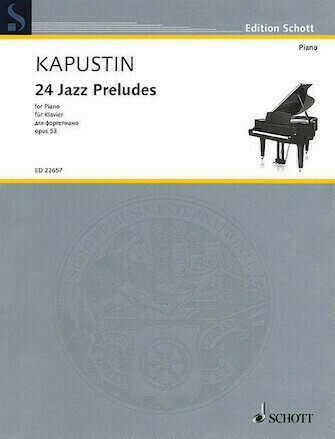
A Russian composer writing jazz-styled preludes? Too much awesome.
Here’s a video of the composer playing one of them:
Jennifer Knapp: Kansas 25
I was an instant supporter of this album on Kickstarter and now I’m finally getting a chance to listen to it: Jennifer Knapp’s Kansas 25. Back when Kansas came out in 1998, college me was totally drawn in. Smart lyrics, catchy tunes, and a raw honesty that I didn’t hear in a lot of the other Christian music that was on the radio and for sale in the bookstore. I memorized the songs, sang them on my guitar, sang one of them in church, and spun that CD all the time in the car. I have often mentioned it as one of the three “perfect” Christian music albums ever. It’s that good.
Knapp, now 50, has been on a long road since releasing the original Kansas in her early twenties. She moved to Australia in 2002, publicly came out as a lesbian in 2010, recorded some other albums, and became an outspoken advocate for LGBT causes. There’s something incredibly meaningful about hearing her revisit these faith-filled songs in middle age. The miles have taken their toll - the voice is a little more raspy, the tempos a little slower - but the youthful expressions of faith still ring true all these years later.
If you supported the Kickstarter, you probably already have the download. (If not, find it in your inbox!) If you didn’t get in early, head over to Bandcamp where you can preorder it and listen as soon as it officially releases on May 17.
